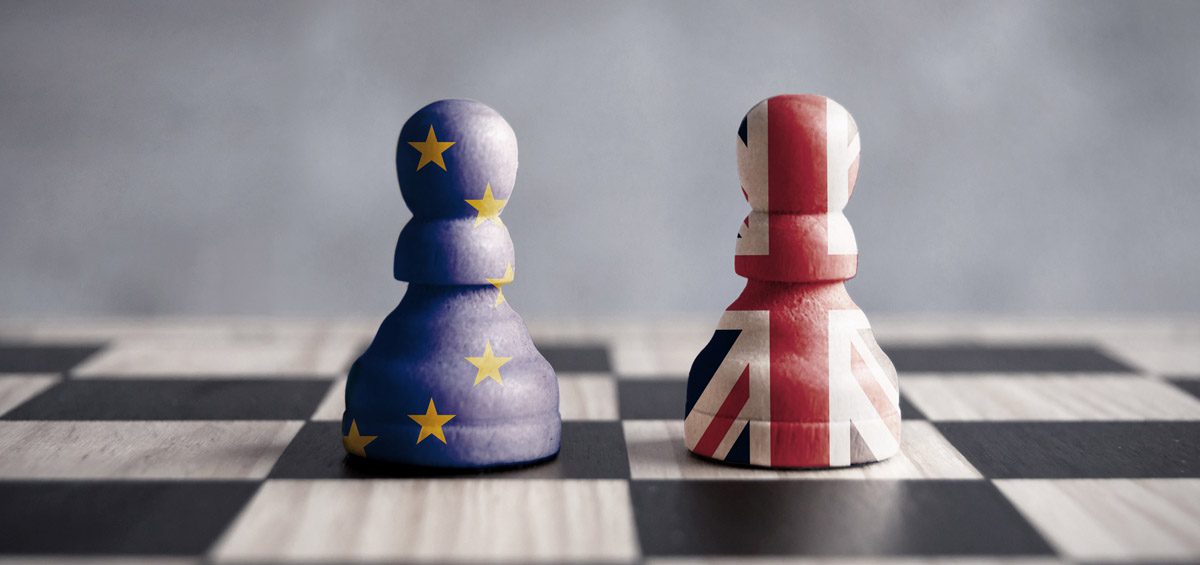Does your company import from or export to the United Kingdom (UK)? Or do you plan to do so in future? Then Brexit will undoubtedly have some unpleasant consequences for you. It is important to know what changes there will be and how you, as a business, can deal with that.
Hard Brexit or Soft Brexit
Right now, there are a number of versions of a possible Brexit on the table, often commonly referred to as the ‘hard’ option or the ‘soft’ option. In the soft option, the British people will remain part of the Single European Market: free movement of goods, services, capital and people. In case of a hard Brexit this freedom ceases to exist and the UK leaves the Single European market and the European Customs Union.
What is stopping parties from choosing a ‘soft’ Brexit? The British people absolutely do not want free movement of people, which is part of the Single Market and they do not want to be bound by certain EU legislation. The opinion of the EU seems to be: you’re either in or out, and no cherry-picking.
Consequences
Depending on the scenario, the Brexit may have significant consequences for the current way of trading. Here are some examples of things that may change:
Soft Brexit
Not part of the EU, but still part of the Single Market, like Norway. In this case, the UK adopts EU rules and regulations to a large extent, which among other things should lead to:
- Recognition of EU transport licences and regulations
- Occasional custom checks, therefore minimum waiting times
- Drawing up export documents, but no high import levies
Hard Brexit
The UK leaves the Single European Market and the European Customs Union. In the absence of an agreement, the WTO regulations come into force. This could lead to:
- An increase in export costs due to high import tariffs
- Compulsory use of customs documents
- Customs and passport checks, with long waiting times at the border
- Veterinary and phytosanitary certificates
Of course, there is a grey area between the ‘hard’ and ‘soft’ Brexit. It is not just the one or the other, that still has to be negotiated. Should negotiations fail, it will mean a ‘hard’ Brexit.
Windhorst is preparing for all possible outcomes. Windhorst has the necessary knowledge and tools to provide its customers transport to and from the UK, whatever the scenario.
Application for EORI-number
For companies established within the EU that do business with companies outside the EU, must have a number that allows them to complete their customs declaration. That, of course, also applies to companies that do business with the UK. This number is known as an EORI-number. The waiting times for these numbers is expected to be up to three months, so do not wait too long to apply for one.
Revising your delivery terms and conditions
Of course, if you export products, after the Brexit you do not want to be confronted will all sorts of levies, such as import duties and other costs involved in imports and exports. You can include any agreements on this in your delivery conditions. Fortunately, there are international standards for the different options in delivery conditions. Branch-organisation EvoFenedex has listed them here for you (article in Dutch).
Would you like to know which are best suited to your company? Feel free to contact us, we are happy to advise you.
Recession
For each of the various scenarios, economists predict some degree of economic downturn in the UK as a result of Brexit. The harder the Brexit, the greater the economic consequences. The exact effect on the volume of trade is largely dependent on how ‘hard’ the Brexit is.
No more trade?
Although a drop in trade volumes is inevitable, trade with the UK will not simply disappear. At the moment, the UK imports about twice as much as it exports. Even after Brexit, the need for foreign products will not just come to a standstill.
Business opportunities
- Given the extra challenges, exporters may opt for other customers within Europe. As a result, companies that continue to export to the UK may have more ‘leeway’. Export to the UK will become ‘the work of specialists’.
- Since importing will probably become more expensive for the British, there may be more opportunities for the export of cheaper products. So on balance, the purchasing power of the British will remain unchanged.


